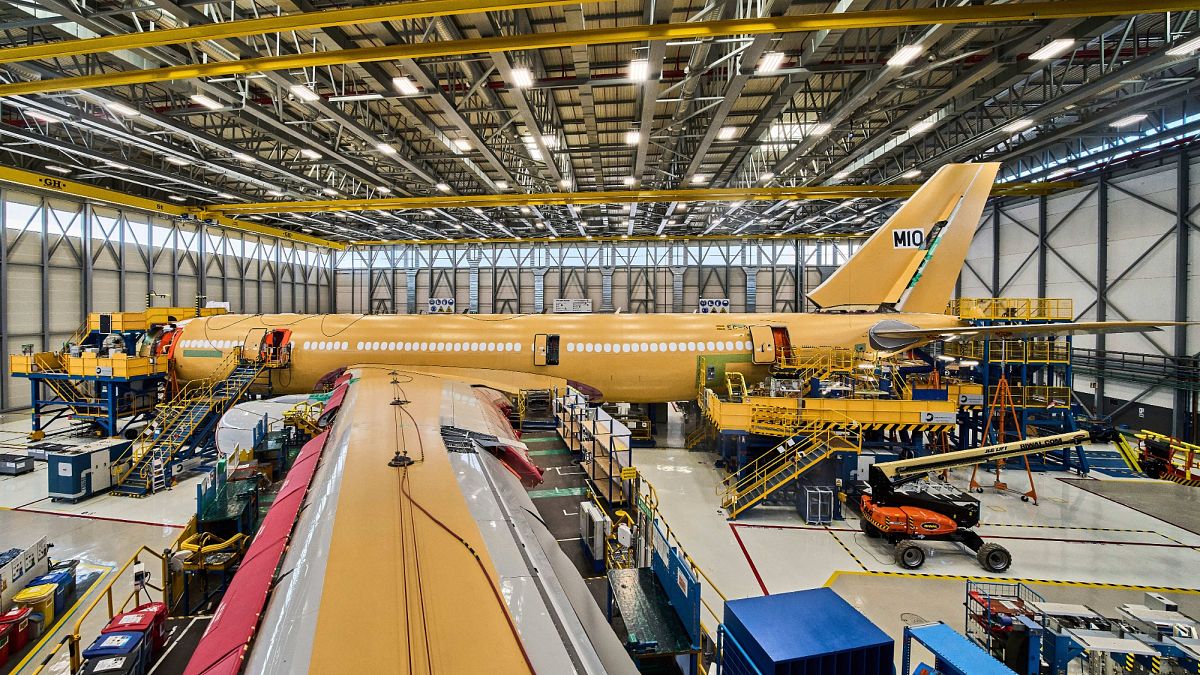

The global landscape of business and international policies is experiencing notable shifts, with significant impact across various sectors. In Europe, the defense industry is spearheading job market expansion, while in Kazakhstan, Spanish enterprises are forging new paths through strategic investments. Across the Atlantic, trade negotiations are bringing changes to Canadian and UK economic interactions with the United States. Meanwhile, a grave issue has emerged in Mexico, where authorities have made a distressing discovery regarding the mishandling of remains. Let’s explore these developments with an eye toward their broader significance.
With the rising importance of security in Europe, the defense sector has seen robust growth that outpaces the general job market. Since 2021, European defense spending has surged by over 30%, a trend reflected in a heightened demand for labor within the sector. This increase in employment opportunities signifies a strategic prioritization of security measures across the continent, reflecting the broader geopolitical landscape marked by a demand for enhanced defense capabilities.
In Central Asia, the Spanish Roca Group is solidifying its presence through a significant €70 million investment in Kazakhstan. This initiative aims to expand the company’s business footprint in the central Asian region, indicating confidence in the area’s economic potential. Roca Group’s commitment exemplifies how companies are adapting strategies to align with emerging markets, fostering growth and innovation beyond traditional geographic boundaries.
North American trade relationships are experiencing a revitalization as trade talks between Canada and the United States resume. The renewal of dialogue follows Canada’s decision to rescind its technology tax, which had strained bilateral relations. Simultaneously, challenges endure, as reflected in the separate tariffs imposed by former US President Trump aimed at curtailing fentanyl smuggling. The negotiation process underscores the complex interplay of diplomatic, economic, and regulatory factors shaping modern trade agreements.
Across the Atlantic, a pivotal moment has arrived for the UK automotive industry, which is poised for renewed engagement with the United States, bolstered by a new trade deal. Anticipation is high among manufacturers like Aston Martin and Range Rover, as shiploads of cars prepare to embark for the US market. Despite the optimism among carmakers, British farmers express concern, feeling collateralized in the trade agreement. It highlights the multifaceted nature of trade agreements which often balance different sectoral interests.
In contrast, a troubling incident in Mexico has drawn attention, where police discovered 381 bodies improperly handled within a Ciudad Juarez crematorium. This distressing event underscores the need for oversight and regulation to prevent such occurrences. Authorities attribute the failing to negligence, prompting reflections on the processes and systems in place for handling sensitive tasks with due care and respect.
Altogether, these developments illustrate intricate dynamics at work in today’s global and regional environments. The concurrent rise in job market opportunities in Europe’s defense sector, strategic investments in Central Asia, evolving trade collaborations in North America, and serious regulatory challenges in Mexico highlight the diverse challenges and opportunities that shape our world. As we navigate these changes, a mindful approach underscores the importance of strategic foresight and cooperative efforts in achieving positive outcomes and addressing emerging challenges.
Source: {link}
